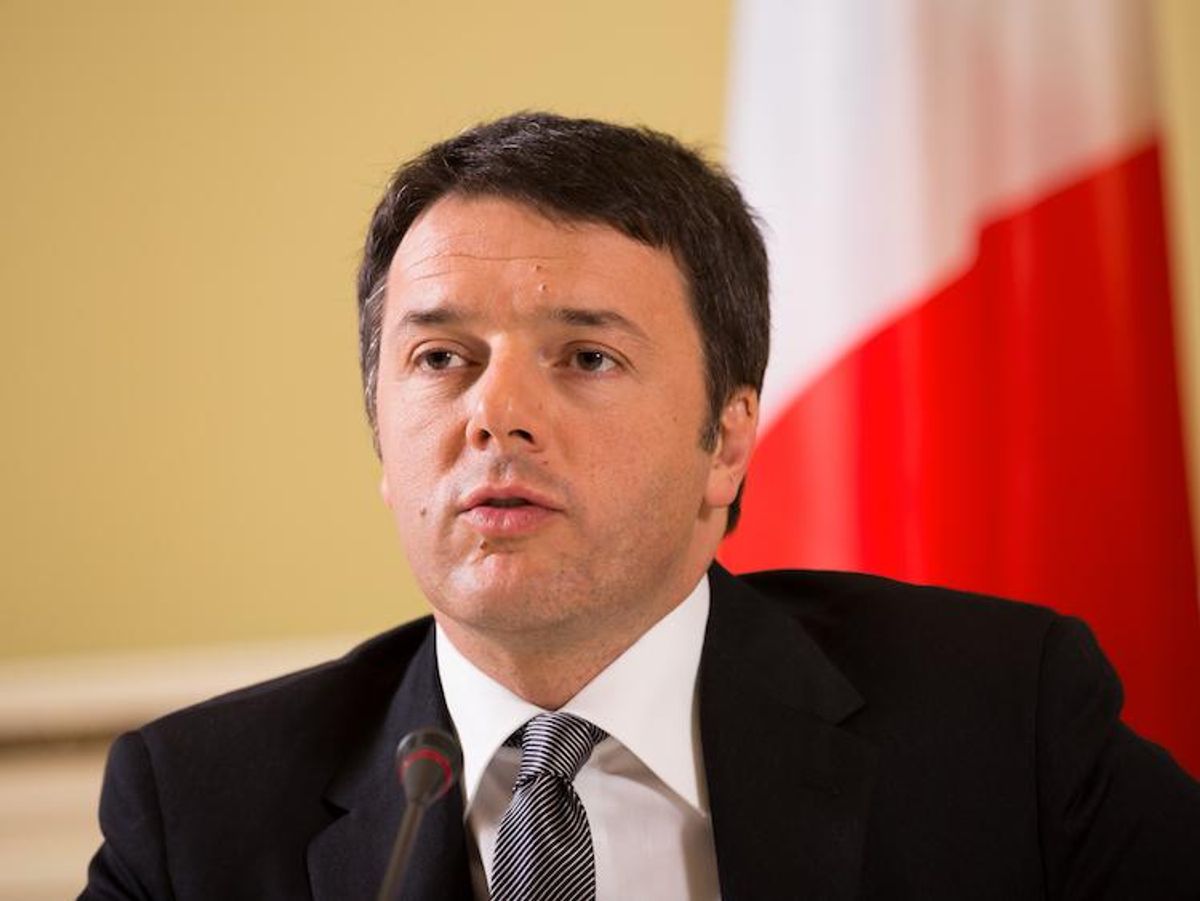Hopes were high earlier this month when Italy's parliament took up the issue of same-sex civil unions. Following on the heels of record-breaking rallies in support of the measure, and with supermajority support from the general population, Prime Minister Matteo Renzi hoped to steer debate to a decisive victory, finally bringing his country into the 21st century. With the bill stalled, New Europe reports that Renzi will call a confidence vote on the issue this Thursday. The legal maneuver compels politicians to vote in support of him--and his legislative agenda--or against. If he retains majority support, the idea is the momentum will ease the law's passage. If he fails to rally members of his ruling coalition, he will be forced to resign.
In taking such a stand, Renzi is demonstrating how crucial this issue is to his premiership. Elected two years ago, his tenure has been a crusade for modernity, fighting to bring Italian politics and policy into accord with the rest of Western Europe.
Currently, Italy is the only major Western European nation without any legal recognition or rights for same-sex couples, and the last of the original European Union nations without full marriage equality. The Roman Catholic Church, with its home in the heart of the Italian capital, exerts a very real power throughout the nation. While the Vatican has sought to insert itself into the debate--as it did far more forcefully under Benedict XVI--Renzi has expressly told the Catholic Church keep to the sidelines. In a radio interview, he lashed out at critics:
"What is there to fear from two people who love each other? Why not give these rights to two people who love each other? The majority of the country is clearly in favor of it."
However, as recent trends demonstrate, Catholic majority countries are actually far more likely to embrace marriage equality, despite the fierce opposition from the church hierarchy. In 2010, Italy's Constitutional Court found that gay couples are deserving of "homogenous treatment as marriage." While the then-government failed to make the issue a priority, Renzi's resolve has certainly been spurred on by Catholic-majority Ireland's popular adoption of marriage equality in May 2015, and by a ruling by the European Court of Human Rights two months later that found Italy's failure to provide any form of recognition for same-sex couples to constitute a human rights violation.
It is the issue of adoption that has threatened to derail what should have been an assured, albeit difficult, victory. For long, Renzi has refused demands from opposition parties and even members within his own ruling coalition to remove the provision that would allow for one same-sex partner to adopt the biological child of the other. Earlier today, however, Italy's highest court refused to recognize the same-sex partner adoption of a lesbian couple legally performed in the United States. While the decision does not necessarily set a precedent--there are a number of other challenges working their way through the country's courts--it delivered a blow to morale at a time when Renzi desperately needed a boost. To the dismay of LGBT advocates, Italian media reports that the Prime Minister will now abandon his attempt at the adoption legislation, and will call a confidence vote on the now less contentious civil unions bill on Thursday.
























































































